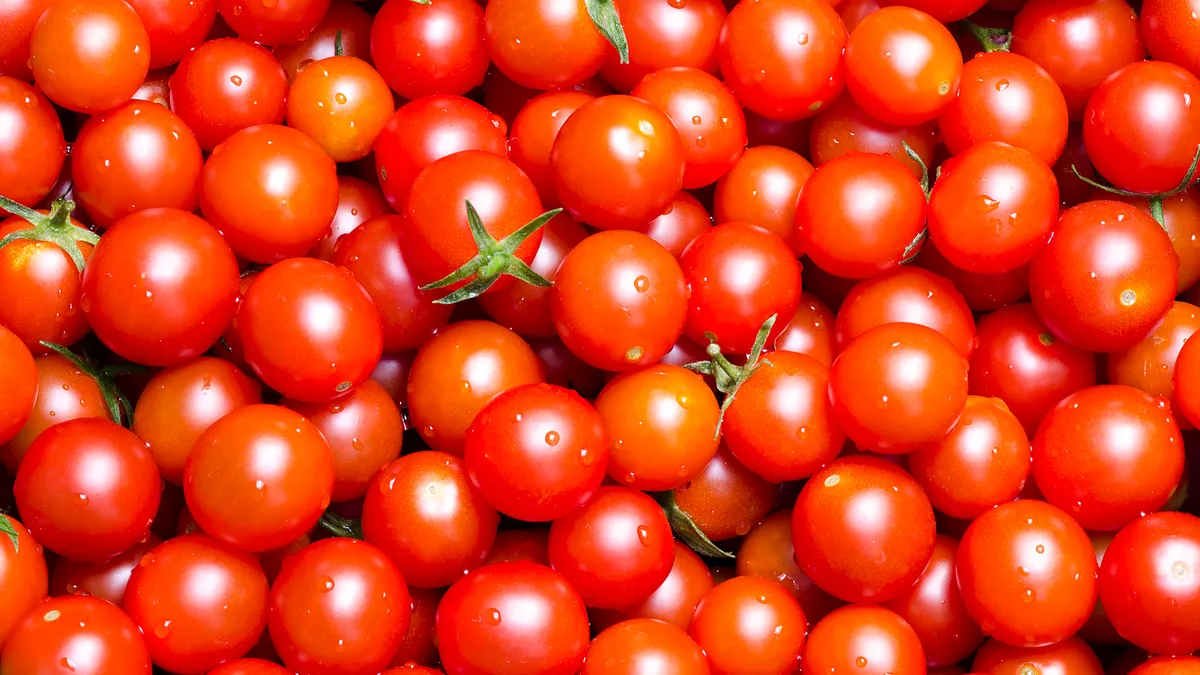Dive Brief:
- Tomato-breeding partners NRGene and Philoseed announced major progress in the development of a high-resistance trait able to combat a virus that leaves brown wrinkly spots on fruits.
- After recently completing several tests, the companies said early adopters in Europe and the U.S. saw high levels of “virus resistance in plants infected with local variants” of the Tomato Brown Rugose Fruit Virus (ToBRFV), a contagious disease that has created challenges for the industry worldwide and led to severe crop losses.
- NRGene and Philoseed are working to expand on their ToBRFV findings and accelerate the seed commercialization process as competitors race to develop and patent their own high-resistance traits.
Dive Insight:
Since its first sighting on a farm in Israel in 2014, ToBRFV has spread rapidly around the world, affecting tomato growers and companies on a significant scale.
For years, while no varieties were available, the best available guidance was prevention. When crops showed signs of infection, they were eradicated, leading to steep crop and economic losses, according to research from the National Library of Medicine. Symptoms can be mild to severe in tomatoes and peppers, including splotches, wrinkles and brown or black discoloring. Humans and animals are not affected by the virus.
As the disease spread, seed and genetics developers raced to find a solution to the problem. After years of tests, Syngenta was the first to announce a variety for commercial use in late 2020. Bayer debuted a handful of tomatoes with intermediate resistance in May 2021. But varieties with high-resistance efficacy remain in the development pipeline for now.
NRGene and Philoseed said receiving customer validations is a major step toward widespread commercialization. In 2022, the companies successfully mapped DNA regions in wild tomato plants that enhance their resistance to ToBRFV. To date, 10 seed breeding companies have licensed and incorporated the seeds harboring resistance into their tomato varieties.
“Based on our field trials, we are highly confident about the potential of our resistance source,” Philoseed CEO Amit Schwarz said in a statement.
In order to protect the high-resistance trait, the genetic markers and tomatoes harboring them, NRGene and Philoseed said they filed several patent applications. They are estimating the implementation phase of the high-resistance trait to take up to 18 months.











